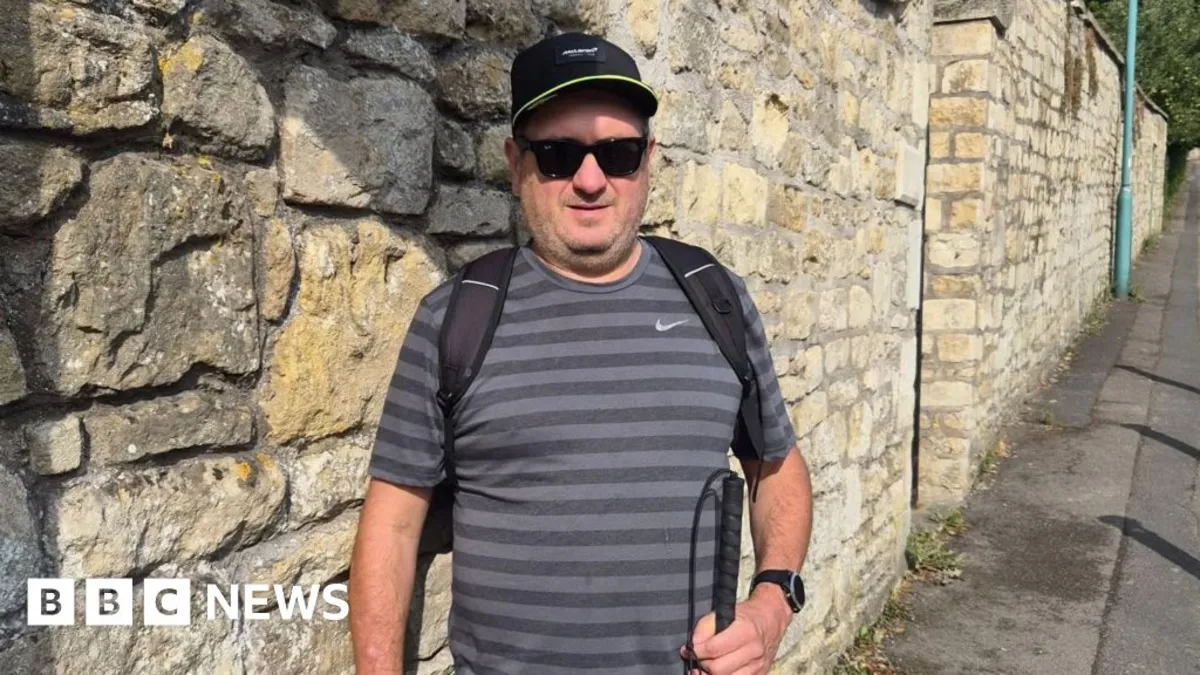
A man named Andy Evans, 57, from Larkhall near Bath, has shared how new AI glasses have remarkably transformed his life after he was registered blind. After losing his vision, Mr. Evans became unemployed, having previously worked nights at a Morrison's supermarket. However, he now enjoys a significantly improved quality of life thanks to his innovative glasses, which come equipped with a camera embedded in the frame and tiny speakers located in the arms.
Mr. Evans, who relies on a white cane for navigation, describes how he can once again order food in restaurants and identify obstacles in his path by simply asking his glasses. The Ray-Ban glasses, developed by Meta—the parent company of Facebook and Instagram—are voice-activated, allowing users to interact with the built-in artificial intelligence technology to complete various tasks effortlessly.
One of the most entertaining features of these AI glasses is the option to select from a variety of celebrity voices in the UK. Mr. Evans chose the voice of the esteemed Dame Judi Dench, who humorously refers to him as "James Bond" and "007." This personal touch enhances the user experience, making daily interactions more enjoyable.
Thanks to the capabilities of his new glasses, Mr. Evans has successfully returned to work. He is now employed at the Sight Support West of England charity, where he assists others in adjusting to sight loss. He expressed his sentiments during an interview with BBC Radio Bristol, saying, "I was really stuck doing a lot of things. What you can do is ask them to look and tell you what's going on around you. It's life-changing technology."
Robin Spinks, head of inclusive design at the Royal National Institute of Blind People, praised the glasses as a prime example of how technology can create a real and tangible impact for those who are blind or partially sighted. As a registered blind individual himself, Mr. Spinks shared, "I use these glasses every day. Getting a description of a room or a scene on the beach or even a zoo enclosure is quite transformational."
As AI technology continues to advance rapidly, the market for smart glasses remains in its early stages. However, the potential for innovation and positive change in the lives of the visually impaired is enormous. With advancements like those seen in Mr. Evans's experience, the future looks bright for the integration of technology in enhancing accessibility and improving quality of life for millions.